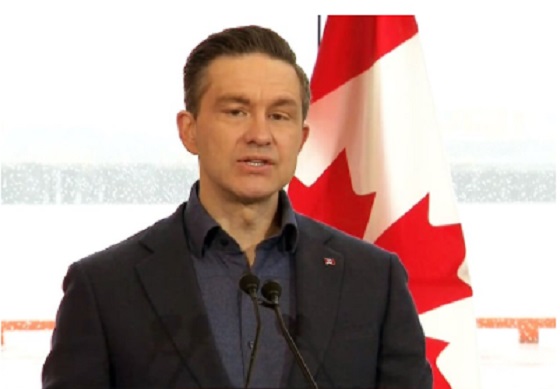Alberta
Alberta government’s new smartphone restrictions won’t eliminate digital distraction in classrooms

From the Fraser Institute
By Paige MacPherson and Tegan Hill
Research has shown that simply having a smartphone nearby is enough to distract students from completing a task, and that it takes students 20 minutes to regain focus on learning after being distracted. And when schools removed smartphones from the classroom in the United Kingdom, Belgium and Spain, learning outcomes improved, especially for underperforming kids.
According to a new directive from the Smith government, beginning next September there will be restrictions on smartphones in Alberta schools. While the directive is light on details, one thing is clear—given mounting evidence that smartphone distraction can hinder academic performance, unless the province (or individual school authorities) ban smartphones in the classroom, students will continue to suffer the consequences.
Indeed, research has shown that simply having a smartphone nearby is enough to distract students from completing a task, and that it takes students 20 minutes to regain focus on learning after being distracted. And when schools removed smartphones from the classroom in the United Kingdom, Belgium and Spain, learning outcomes improved, especially for underperforming kids.
Moreover, the latest Programme for International Student Assessment (PISA) report found a clear connection between smartphone distraction and declining student achievement, particularly in math. Specifically, 80 per cent of Canadian students report being distracted by the devices of other students in math class—and students who were distracted by smartphones in math class scored 15 points lower on PISA math tests than those who were not distracted. (PISA equates a 20-point drop in student test scores with one year of lost learning.)
Again, this is not just students distracted by their own devices, which are obvious attention-zappers for kids and teens. This is students distracted by the devices of other students. The research on digital distraction and its impact on student achievement makes clear that only a smartphone ban—with very few exceptions—will save kids from digital distraction.
And notably, Alberta’s PISA math scores have fallen 45 points in the last two decades, from 2003 to 2022, which PISA equates with more than two years of lost learning, with the decline predating COVID school closures.
The empirical evidence against smartphones in schools is mounting. But it’s also common sense, and people understand. The Alberta government’s own survey revealed that 90 per cent of more than 68,000 respondents—including parents, teachers, students and principals—had concerns about phone use in schools. This is consistent with other public opinion research in Canada. One survey showed 80 per cent of Canadians support banning phones in public schools. Another found that 51 per cent of Albertans said that phones should be banned in K-12 classrooms, and another 40 per cent said they should not be allowed unless directed by a teacher.
In 2019, the Ontario government issued a similar directive restricting smartphones in K-12 schools, which was nearly pointless because the government left the specifics up to school boards (just like the Smith government is now leaving the specifics up to school authorities in Alberta). Without being able to point to an overarching policy, Ontario teachers said they spent too much time surveilling and nagging in class, and many stopped trying altogether.
In its directive, the Smith government indicated there will be exceptions not only for reasonable health and medical needs (e.g. blood sugar monitoring) but also for “learning needs, and for educational purposes.” To actually eliminate digital distraction in the classroom, the provincial education ministry must support school authorities, who must support principals, who must support teachers to help enforce an actual ban.
While we should be skeptical of reflexive government “bans” in general, smartphones clearly impede student learning and socialization in schools. Banning smartphones in K-12 public government schools is the right move. But a patchwork approach, which accommodates endless exemptions, won’t free Alberta classrooms from the negative effects of digital distraction.
Authors:
Alberta
Alberta takes big step towards shorter wait times and higher quality health care

From the Fraser Institute
On Monday, the Smith government announced that beginning next year it will change the way it funds surgeries in Alberta. This is a big step towards unlocking the ability of Alberta’s health-care system to provide more, better and faster services for the same or possibly fewer dollars.
To understand the significance of this change, you must understand the consequences of the current (and outdated) approach.
Currently, the Alberta government pays a lump sum of money to hospitals each year. Consequently, hospitals perceive patients as a drain on their budgets. From the hospital’s perspective, there’s little financial incentive to serve more patients, operate more efficiently and provide superior quality services.
Consider what would happen if your local grocery store received a giant bag of money each year to feed people. The number of items would quickly decline to whatever was most convenient for the store to provide. (Have a favourite cereal? Too bad.) Store hours would become less convenient for customers, alongside a general decline in overall service. This type of grocery store, like an Alberta hospital, is actually financially better off (that is, it saves money) if you go elsewhere.
The Smith government plans to flip this entire system on its head, to the benefit of patients and taxpayers. Instead of handing out bags of money each year to providers, the new system—known as “activity-based funding”—will pay health-care providers for each patient they treat, based on the patient’s particular condition and important factors that may add complexity or cost to their care.
This turns patients from a drain on budgets into a source of additional revenue. The result, as has been demonstrated in other universal health-care systems worldwide, is more services delivered using existing health-care infrastructure, lower wait times, improved quality of care, improved access to medical technologies, and less waste.
In other words, Albertans will receive far better value from their health-care system, which is currently among the most expensive in the world. And relief can’t come soon enough—for example, last year in Alberta the median wait time for orthopedic surgeries including hip and knee replacements was 66.8 weeks.
The naysayers argue this approach will undermine the province’s universal system and hurt patients. But by allowing a spectrum of providers to compete for the delivery of quality care, Alberta will follow the lead of other more successful universal health-care systems in countries such as Australia, Germany, the Netherlands and Switzerland and create greater accountability for hospitals and other health-care providers. Taxpayers will get a much better picture of what they’re paying for and how much they pay.
Again, Alberta is not exploring an untested policy. Almost every other developed country with universal health care uses some form of “activity-based funding” for hospital and surgical care. And remember, we already spend more on health care than our counterparts in nearly all of these countries yet endure longer wait times and poorer access to services generally, in part because of how we pay for surgical care.
While the devil is always in the details, and while it’s still possible for the Alberta government to get this wrong, Monday’s announcement is a big step in the right direction. A funding model that puts patients first will get Albertans more of the high-quality health care they already pay for in a timelier fashion. And provide to other provinces an example of bold health-care reform.
Alberta
Alberta’s embrace of activity-based funding is great news for patients

 From the Montreal Economic Institute
From the Montreal Economic Institute
Alberta’s move to fund acute care services through activity-based funding follows best practices internationally, points out an MEI researcher following an announcement made by Premier Danielle Smith earlier today.
“For too long, the way hospitals were funded in Alberta incentivized treating fewer patients, contributing to our long wait times,” explains Krystle Wittevrongel, director of research at the MEI. “International experience has shown that, with the proper funding models in place, health systems become more efficient to the benefit of patients.”
Currently, Alberta’s hospitals are financed under a system called “global budgeting.” This involves allocating a pre-set amount of funding to pay for a specific number of services based on previous years’ budgets.
Under the government’s newly proposed funding system, hospitals receive a fixed payment for each treatment delivered.
An Economic Note published by the MEI last year showed that Quebec’s gradual adoption of activity-based funding led to higher productivity and lower costs in the province’s health system.
Notably, the province observed that the per-procedure cost of MRIs fell by four per cent as the number of procedures performed increased by 22 per cent.
In the radiology and oncology sector, it observed productivity increases of 26 per cent while procedure costs decreased by seven per cent.
“Being able to perform more surgeries, at lower costs, and within shorter timelines is exactly what Alberta’s patients need, and Premier Smith understands that,” continued Mrs. Wittevrongel. “Today’s announcement is a good first step, and we look forward to seeing a successful roll-out once appropriate funding levels per procedure are set.”
The governments expects to roll-out this new funding model for select procedures starting in 2026.
* * *
The MEI is an independent public policy think tank with offices in Montreal, Ottawa, and Calgary. Through its publications, media appearances, and advisory services to policymakers, the MEI stimulates public policy debate and reforms based on sound economics and entrepreneurship.
-

 conflict1 day ago
conflict1 day agoZelensky Alleges Chinese Nationals Fighting for Russia, Calls for Global Response
-

 2025 Federal Election1 day ago
2025 Federal Election1 day agoHarper Endorses Poilievre at Historic Edmonton Rally: “This Crisis Was Made in Canada”
-

 Energy2 days ago
Energy2 days agoEnergy group urges Trump administration to restock oil reserves
-

 Business2 days ago
Business2 days agoTrump eyes end of capital gains tax in 2025
-

 Bruce Dowbiggin2 days ago
Bruce Dowbiggin2 days agoBettman Gives Rogers Keys To The Empire. Nothing Will Change
-

 2025 Federal Election2 days ago
2025 Federal Election2 days agoPoilievre Will Bring in ‘One and Done’ Resource Approvals, and Ten Specific Projects Including LNG Canada Phase II
-

 2025 Federal Election1 day ago
2025 Federal Election1 day agoAn In-Depth Campaign Trail “Interview” With Pierre Poilievre
-

 Alberta15 hours ago
Alberta15 hours agoAlberta’s embrace of activity-based funding is great news for patients












